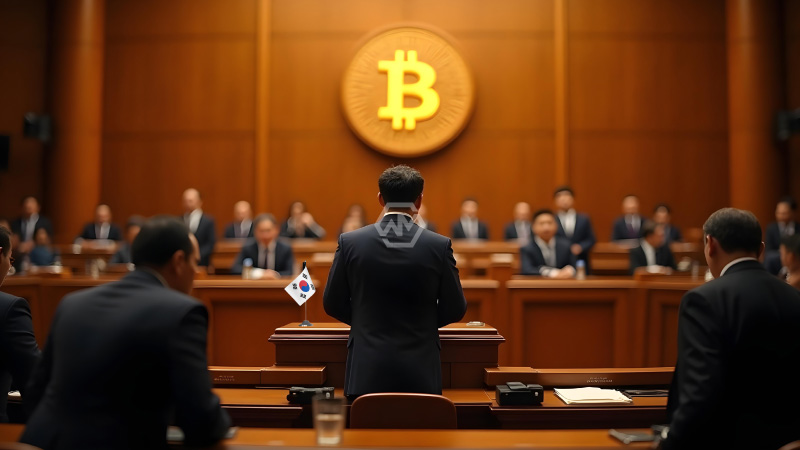- South Korea’s Democratic Party forms a Digital Asset Committee to centralize crypto policymaking.
- Stablecoins pegged to the Korean won face regulatory uncertainty amid Terra-Luna collapse concerns.
- The Bank of Korea pushes to oversee KRW-based stablecoins to safeguard national financial stability.
South Korea’s Democratic Party is leveraging digital assets as a key campaign issue ahead of the June 3 presidential election. The newly formed Digital Asset Committee aims to centralize cryptocurrency regulation under the president’s office, with two core divisions focusing on tech innovation and regulatory frameworks.
Stablecoins pegged to the Korean won are at the heart of the regulatory debate. While Democratic Party candidate Lee Jae-myung advocates for a rapid rollout of a won-linked stablecoin, critics point to the Terra-Luna crash as a cautionary tale.
South Korea’s Crypto Regulations: A Political Power Play
As South Korea approaches its June 3 presidential election, cryptocurrency regulation has emerged as a key campaign issue. The Democratic Party has established a Digital Asset Committee to consolidate crypto policymaking under the presidential office. The committee’s first meeting brought together government officials, lawmakers, and leaders from major exchanges to draft the “Stage 2 Bill,” which aims to lay the groundwork for comprehensive digital asset regulation.
Committee Chairman Min Byeong-deok has criticized the “one exchange, one bank” system, calling it outdated and limiting for crypto businesses. The committee plans to explore reforms that would allow multiple banking partnerships, easing the regulatory burden on crypto exchanges while promoting industry growth.
Stablecoins remain a contentious topic, especially those pegged to the Korean won. Candidate Lee Jae-myung has proposed a swift market entry for a won-linked stablecoin, but the Bank of Korea is pushing back. The central bank warns that unregulated KRW-based stablecoins could undermine monetary policy and urges stronger oversight.
With over 16 million South Koreans investing in crypto, the election is now a battleground for digital finance. Lee Jae-myung promises rapid innovation to prevent capital flight, while Kim Moon-soo advocates for tighter regulatory frameworks and public fund investment in blockchain projects.
South Korea’s upcoming election is shaping up to be a referendum on crypto regulation, with the Democratic Party prioritizing innovation and the central bank emphasizing financial stability.
“Before we can talk about innovation, we must secure stability,” — Koh Kyung-chul, Bank of Korea



